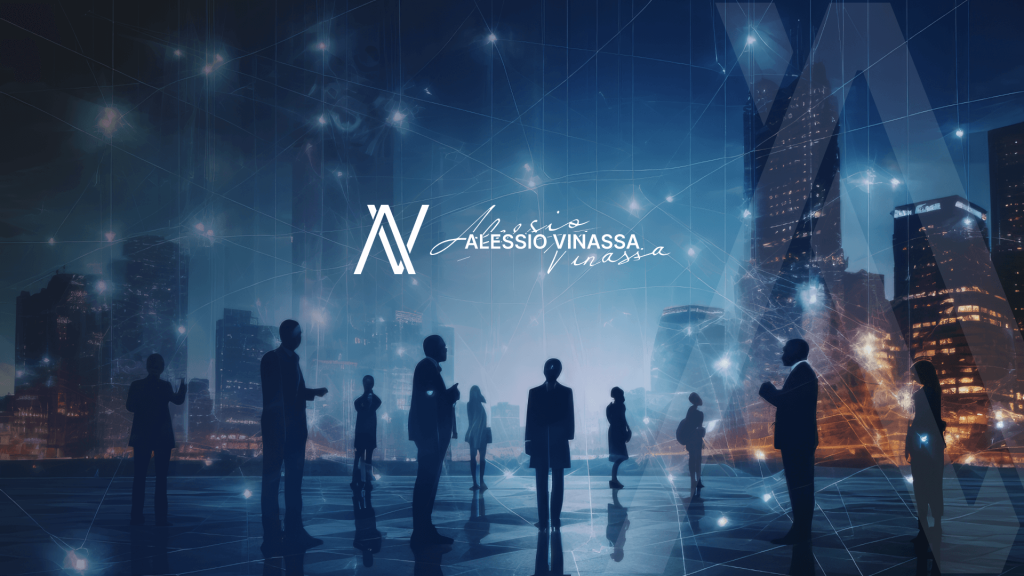
Building Ethical and Resilient Blockchain Ecosystems: A Vision Shared by Alessio Vinassa
Technology is neutral — but the systems we build with it are not. As blockchain continues to shape the future of digital infrastructure, there’s a growing awareness that how we build matters just as much as what we build.
From data ownership to platform governance, blockchain has opened up new possibilities for empowering individuals and communities. But alongside its promise comes responsibility: to ensure that these new systems are ethical, resilient, and genuinely designed for human and societal development.
For global entrepreneurs and Web3 builders, the task ahead is clear: create blockchain ecosystems that prioritize sustainability, transparency, and shared value — not just speed and growth.
The Early Days: Fast Growth, Fragile Foundations
In its early evolution, blockchain innovation raced ahead of regulation and reflection. Many projects focused on rapid scaling, financial incentives, and hype-fueled user acquisition.
While this brought in capital and visibility, it also:
- Overlooked user protection and data ethics
- Enabled exploits, scams, and instability
- Fostered extractive models that put profit over purpose
Today, the industry is maturing. A more thoughtful wave of innovation is rising — one that combines technological progress with long-term thinking, community alignment, and ethical foundations.
Alessio Vinassa, an advocate for values-driven entrepreneurship, highlights this turning point:
“We have a rare opportunity to build the next digital infrastructure with integrity. Blockchain lets us reset how trust, governance, and ownership work — if we do it consciously.”
What Makes a Blockchain Ecosystem Ethical?
Ethical blockchain ecosystems are designed with the following principles in mind:
- Transparency: All processes — from development to governance — are open, auditable, and documented.
- Inclusivity: Access is available to all, regardless of geography, income, or technical skill.
- Data ownership: Users control their personal data and digital identities.
- Equitable incentives: Contributors are rewarded fairly and proportionally.
- Environmental sustainability: Ecosystems reduce energy consumption and prioritize eco-friendly design.
These are not “nice to have” values — they are critical components of resilient systems that earn trust and withstand time.
Resilience in a Volatile World
Decentralized ecosystems must not only be ethical — they must be resilient to disruption, manipulation, and failure. This means:
- Diverse contributor bases to reduce single points of failure
- Multi-stakeholder governance that adapts to change
- Open-source development that invites global participation
- Clear risk mitigation and contingency planning
In a world facing geopolitical shifts, climate instability, and digital fragility, the most valuable technologies will be those that are both adaptable and principled.
For entrepreneurs, this creates a rare intersection: the ability to lead with values while building high-impact, international solutions.
Real Examples of Responsible Innovation
Several projects have emerged as examples of ethical, resilient Web3 models:
- Gitcoin funds public goods through community-driven grants and quadratic funding, aligning financial value with social impact.
- Polygon and Near Protocol are pushing for energy-efficient blockchain infrastructure.
- Open-source DAOs like Optimism are building governance systems that prioritize long-term impact over short-term hype.
These projects showcase how Web3 can support business growth without compromising ethics — and why more builders are shifting in this direction.
As Alessio Vinassa puts it:
“True resilience in business isn’t just about surviving disruption. It’s about being built to serve others, not just shareholders.”
Key Takeaways
- The next generation of blockchain ecosystems must be built with ethics, transparency, and inclusivity at the core.
- Early blockchain growth often prioritized speed and speculation; today’s entrepreneurs must prioritize integrity and long-term value.
- Resilient systems are decentralized, open-source, community-governed, and globally inclusive.
- Alessio Vinassa calls on builders to take responsibility and see blockchain not as a tool for power, but for international development and trust restoration.
- Ethical ecosystems will ultimately outperform those that prioritize extraction over contribution.
Conclusion
Web3 gives us a blank slate — a chance to rebuild digital systems that work better, serve more people, and last longer. But that potential is not guaranteed. It depends on the values we embed in our code, our governance, and our communities.
For the entrepreneurs leading this charge, the challenge is not just to build fast — but to build right. Because in a decentralized future, resilience comes from integrity.
To know more about Alessio Vinassa and his business philosophies, visit his website at alessiovinassa.io.
You can also find and follow him on the following social platforms:
Instagram – @alessiovinassa.business
Facebook – Alessio Vinassa Business
X (Twitter) – @vinassa_alessio